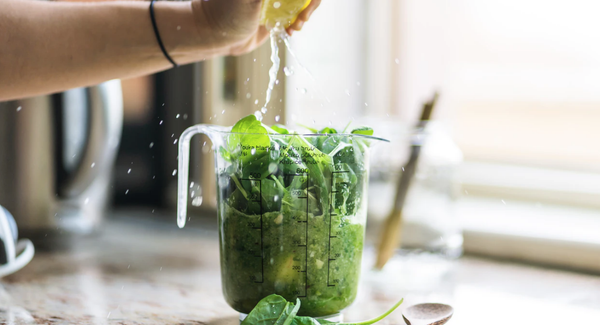Ah, yes. The juice cleanse. Yet another popular diet trend that promises to magically solve all of your health, nutrition, and weight issues.
When you take a close look, juice cleanses aren't as magical as they are made out to be, and in fact, they might do more harm than good.
1. Low caloric intake may stunt your metabolism
Juice cleanses are extremely low in calories, which is why they are promoted for weight loss and detoxification. That being said, though, these cleanses are also often a few days, long, which means you will be taking in very few calories for an extended period of time. Because juices don't contain adequate protein or calories, it is possible that your body may switch its energy sources such that your muscles will start breaking down in order to maintain your energy supply.
2. Blood sugar spikes
Juicing foods ultimately removes all of the fiber that they originally contained. What does this mean, exactly? It means that what's left behind is sugar. Combine that with the fact that this is all you are consuming for those couple of days, and your result is blood sugar spikes that cause headaches, fatigue, and weakness.
3. Cleanses might flush out good bacteria
Some cleanses, specifically those which promise to detoxify your intestines, can actually end up wiping out the good bacteria in your system by flushing everything away. This can majorly mess up your immunity as well as your digestion, because those bacteria help fight infections and keep toxins out.
4. Cleanses are a quick fix
Juice cleanses are labeled as a "quick fix," which may sound appealing, but in reality, this just means they are highly unsustainable, and the changes they yield are temporary.
5. Juices are not any healthier than whole foods
When it comes down to it, juices aren't any healthier than their whole-food counterparts. Plus, whole fruits and veggies contain fiber that their respective juices do not.
6. The juice cleanse trend inadvertently supports restrictive eating
When the juice cleanse trend reaches someone whose relationship with food is not healthy, it can do some real damage to their wellbeing. The idea of consuming virtually nothing over the course of a couple of days goes hand in hand with eating disorder culture, especially when it is so highly promoted with so little scientific evidence to back it up.
7. Nutrient depletion
As mentioned before, juice cleanses contain no protein. Additionally, juices don't contain important vitamins and nutrients, such as B12, which is found only in animal products. If you don't already supplement B12, a juice cleanse results in you depriving yourself entirely of this vitamin just for the sake of a quick fix.
8. A juice cleanse won't fix your food habits
If you are turning to a juice cleanse because your diet tends to consist mainly of junk food, a cleanse is not going to fix this. In fact, you might rebound and binge even more junk food once the cleanse is over because you deprived yourself of it for a few days. A cleanse is not a sustainable way to regulate your food intake. If you want to change the things you are eating, focus on the concept of moderation instead. Everything is OK in moderation. Strive to be your healthiest self 70 percent of the time, and then treat yourself 30 percent of the time. It is all about balance.
9. Our bodies detoxify themselves, they don't need extra help
The bottom line is that our bodies are actually great at detoxifying themselves, so juice cleanses for the purpose of detoxification truly aren't needed. If that's the case, then why spend $50 on juices that promise to do something your body already does for itself?
All in all, juice cleanses are a "no" from me. We don't need them, and quite frankly they don't do much for us anyway. Sure, a juice cleanse might result in you dropping a couple of pounds, but that weight loss comes from deprivation and muscle loss, meaning it probably won't be kept off.
if you want to be your healthiest you, focus on balance rather than bottles.





















